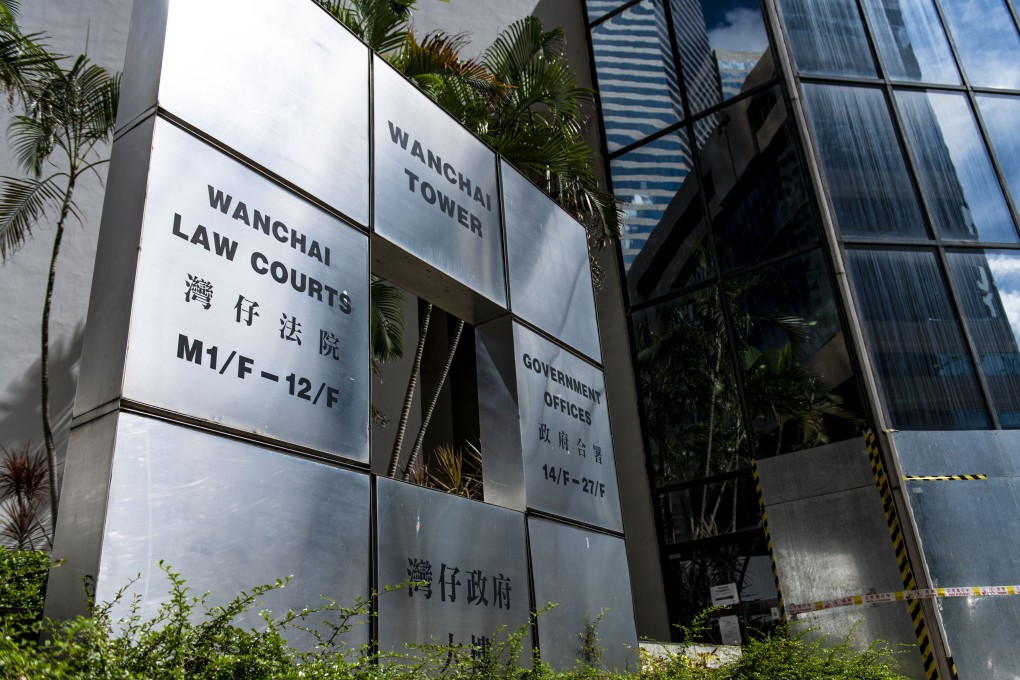School clerk, student plead guilty to sedition over leaflet urging Hong Kong independence
- However, the pair have disputed that the leaflet was aimed at inciting violence, with a judge set to pass sentence only after determining the intent behind the document
- The leaflet, titled ‘Hong Kong Federal Republic’, contained slogans calling for the establishment of an army and ‘an independent sovereign state’

A clerk and a secondary school student have pleaded guilty to conspiring to produce and distribute seditious leaflets advocating Hong Kong independence, with their sentences to be handed down after a judge determines whether the publications were intended to incite violence.
Chloe Cho Suet-sum, 45, a senior clerk at the Tsing Yi campus of the Hong Kong Institute of Vocational Education, was refused bail for a seventh time on Monday after spending seven months in remand. The other defendant, Wong Chun-wai, a 17-year-old student, was granted bail to prepare for a school exam later this week.
The pair pleaded guilty before the District Court on Monday to a charge of “conspiracy to print, publish, distribute, display or reproduce seditious publications” over the material advocating Hong Kong independence.
They admitted three seditious intentions listed under the charge: fostering hatred against the city government, exciting residents to attempt to unlawfully alter any legally established matter in Hong Kong and counselling disobedience to law or to any lawful order.
However, the defence and the prosecution have disputed whether the material was also meant to incite others to violence – another one of the seven seditious intentions listed under the Crimes Ordinance.
They court heard that the pair got to know each other at a protest in Mong Kok in May of 2020, with Cho asking Wong to design a leaflet advocating independence. She printed them in her office and delivered them to various places in December of the same year.
The leaflet, titled “Hong Kong Federal Republic”, contained slogans urging the city to “establish an independent sovereign state”, “regain the dominating power” and “build an army”.
Citing Wong’s evidence that the red paint on the leaflet signified blood, prosecutor Karen Ng Ka-yuet argued that “the natural interpretation” of the admonition to build an army was to resist the government by force.